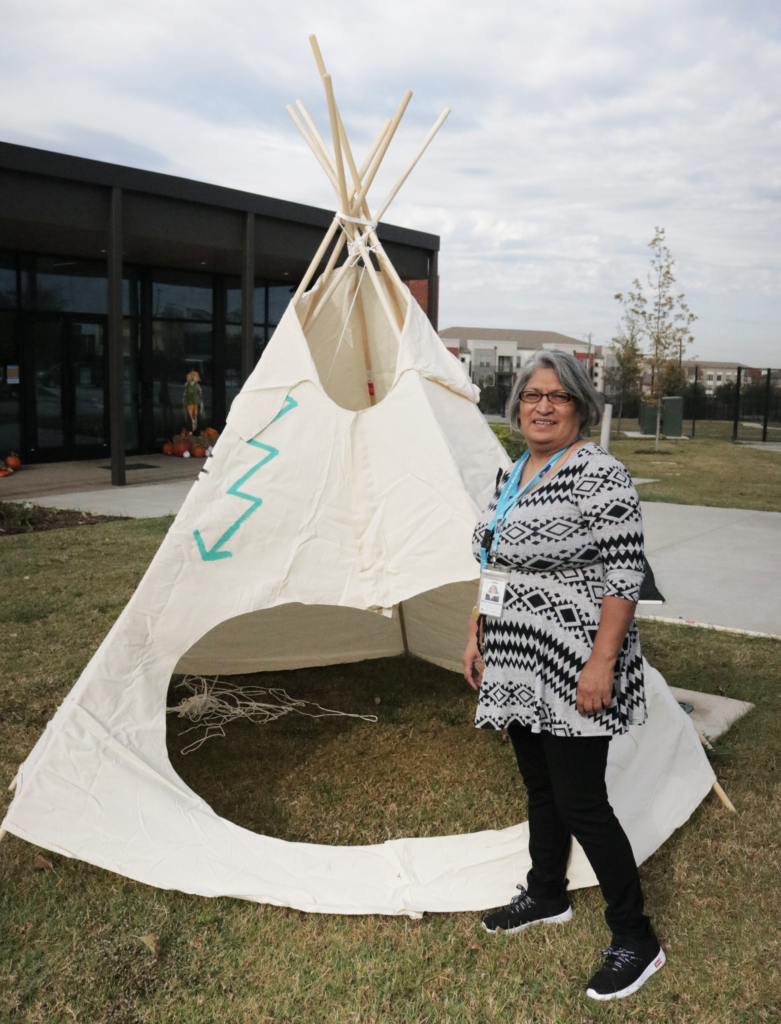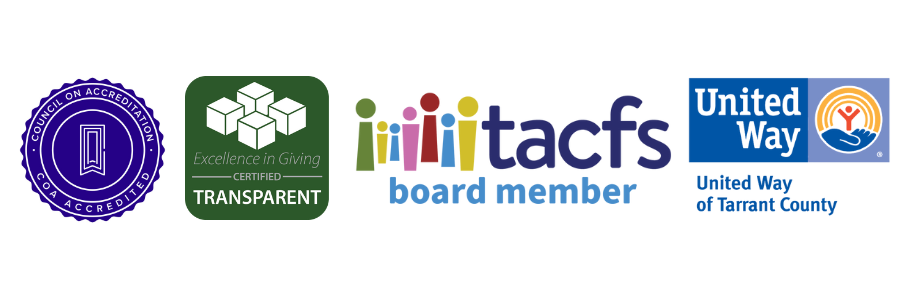Connection Through Culture
November is Native American Heritage Month and at ACH, we value the diversity of our staff. Having a group of unique individuals is crucial for the youth in our care to learn from and relate to.
Alice Barrientez, a supervisor in ACH’s Residential Treatment Program, utilizes her Pueblo and Apache heritage in caring for children who come from traumatic childhoods in foster care. She also shares her traditions with the youth and offers many teaching moments inspired by her culture.
Helping Youth Comes Naturally
The Robert and Jane Ferguson Residential Treatment Center (RTC) is designed to help foster youth with significant behavioral or mental health challenges. At the RTC and throughout ACH, staff utilize Trust-Based Relational Intervention® to meet the complex needs of children who have experienced adversity, early harm, toxic stress, and/or trauma. This method of therapeutic intervention was developed by TCU’s Karyn Purvis Institute of Child Development.
Alice says that many of the practices of TBRI® are second nature to her thanks to her Pueblo upbringing. She was taught how to calm herself down and regulate her emotions, skills we teach to our youth.
“You have to spend days, weeks, or months before you can get the child to be comfortable with you.”
- Alice Barrientez,
ACH Supervisor
Alice also believes that being raised around horses, although not the same, gives her the same mindset for the youth in the RTC, many of whom exhibit extreme behaviors.
“You have to be very careful when you approach a horse and take very small steps. You never want to come behind it,” Alice said. “When you see a child and you know they don’t trust you, you don’t go up to them and hug them, especially our kids in the RTC. You have to spend days, weeks, or months before you can get the child to be comfortable with you.”
Alice also shares her culture with the youth in the RTC through cooking traditional Native American foods and assembling a teepee at the start of Native American Heritage Month. Alice explained the significance of each part of the teepee.
“The rope that ties’ around the tripod represents family members involved in the upbringing of a child. The tripod is the foundation,” said Alice. “The poles that lean on the tripod for extra support are your elders, counselors, medicine man, leaders of the community. The covering is the shield protecting all of the above to succeed in life as a group of people.”
The significance of the teepee can be reflected in work of the RTC. The RTC are the poles that come together in the center, and the staff are the cover that all comes together to shield the children.
Helping Youth Comes Naturally
Gardening is a large part of Alice’s culture, and this is something she was able to share recently with Cody, a 14-year-old boy in the RTC. One day Alice noticed Cody was feeling anxious and went outside with him to help calm him down. He saw the planter boxes outside of the facility and asked if he could plant some seeds. Alice gave him seeds for Summer Squash, and it wasn’t long before flowers started to sprout.

Alice explained to Cody that, just like humans, plants need to be treated well and cared for.
At first, Cody didn’t understand, but Alice compared the plants to him. She asked him, “What would happen to you if I left you alone and didn’t talk to you?” Cody replied, “I’d be sad and lonely.”
“How does it feel when I give you a hug or a knuckle bump?” asked Alice. “It makes me happy,” Cody replied.
Alice explained that the way our staff gives the youth support, care, and praise, while also guiding them when they make a mistake, is exactly what a plant needs.
“He was able to associate his growth with the growth of the plant,” said Alice.
Cody continued to take care of his squash and had two of the four seeds turn into squash. He was able to prepare dinner with the other youth in the program using his squash—an accomplishment he was very proud of. Alice is also proud of the fact that the other youth respect the garden, which reflects a sense of community and growth.
Encouraging Growth
Alice has a strong connection to the youth in the RTC because she also experienced trauma during her childhood. Those experiences help her understand the youth and the reasons behind their behaviors.
“They have a feeling of misplacement, and they feel lost,” said Alice. “They have had too many adults let them down.”
Her experiences have allowed her to better understand the youth and help them in times of stress or anxiety.
“I just do what comes natural to me,” said Alice.
You can learn more about the RTC and take a virtual tour at ACHservices.org/RTC.
You can also help us bring hope to those who need it most this holiday season—just visit ACHservices.org/Christmas.


